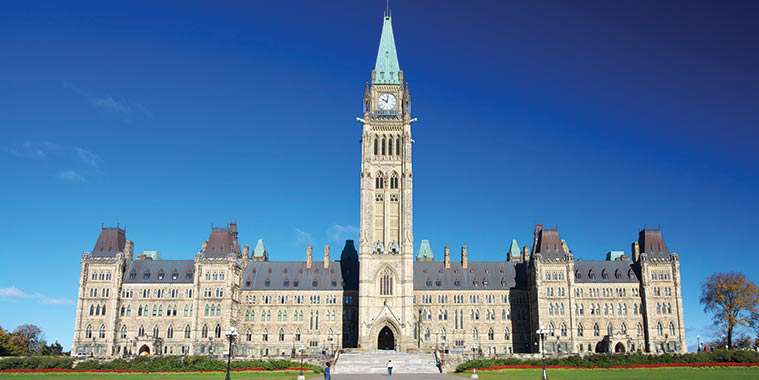by Peter Squire
A new federal budget is scheduled to be released on Tuesday, March 19, by Finance Minister Bill Morneau, and it will be interesting to find out whether the government has been listening to the concerns of Canadians regarding housing markets.
The ongoing issue of the federal mortgage stress test, and how it is impacting housing markets across the country — along with the unintended consequence of making it very difficult for housing markets which were already struggling without needing any intervention to cool them off — was addressed in a submission WinnipegREALTORS® made to CMHC as part of their outreach to seek input from the public and industry stakeholders on developing a new National Housing Strategy.
The submission was made in October 2016, the same time that the first mortgage stress test was introduced and applied to all insured mortgages — or what are referred to as high-ratio mortgages (those with less than 20 per cent down on the property being purchased). The second stress test was introduced on January 1, 2018, and it covers all conventional mortgages which have 20 per cent or more down payment on the subject property. The stress test requires the purchaser to qualify for a mortgage 200 basis points, or 2 full
percentage points, higher than the contracted rate they have negotiated with their lender, or the Bank of Canada five-year fixed term rate — whichever is higher.
The points that were covered in this section of the submission bear repeating now as we head into the new federal budget.
All markets are local
The recent move by Morneau to tighten mortgage rules is a problem in that many markets are reasonably healthy — such as Winnipeg’s — and much more affordable than cities like Toronto and Vancouver. Can we not look at other indicators such as default rates and local finance institution’s portfolios to provide more flexibility with mortgage financing rules in regional markets instead of requiring all insured mortgage applicants to qualify for the Bank of Canada five-year fixed term rate of 4.64 per cent? There may be a need for such regulations in Toronto and Vancouver, but evidence from other areas suggests they may result in negative influences on the market. It will clearly impact first-time homebuyers. To take a one-size-fits-all macro solution to cooling down some overheated housing markets can be counterproductive to helping Canadians achieve homeownership in very different markets across the country.
This message was made loud and clear in a Globe and Mail op-ed submitted by the Atlantic Canada home builders’ associations. Following is an excerpt:
“Where metropolitan housing markets are not closely synchronized in timing or amplitude, as in Canada, monetary policy regulations are crude instruments for addressing regional differences. We believe expanding the ‘stress tests’ will further dampen activity in our relatively slow-moving local housing markets and take buyers out of the market. It will also affect
employment in the construction industry and the demand for building materials.”
The op-ed goes on to recommend that, “rather than changing federal rules that slow Vancouver and Toronto, make those cities special housing zones and apply rules to them.”
Locally, REALTOR® Michael Froese was quoted in the Metro news publication stating that since this announcement was made, he noticed that some local buyers were rushing to get their financing and offers in order before the October 17 deadline. He added that the government’s new policies may help slow the scorching Vancouver and Toronto real estate markets, but for a city like Winnipeg — where the market is already stable — they may do more harm than good.
Further to what WinnipegREALTORS® stated in 2016, there is ample evidence right into this year to show how the federal mortgage stress test has had a far-reaching impact on slowing home buying activity in markets across the country other than just Toronto and Vancouver. This has been especially true for first-time home buyers since they lack the flexibility to make the necessary adjustments needed to meet the more stringent mortgage qualification requirements now thrust upon them.
And besides preventing many Canadians from attaining their dream of home ownership, there is an economic impact to the country as well. Mortgage Professional Canada’s chief economist Will Dunning estimates that Canada will lose up to 100,000 jobs (e.g. drop in housing construction).
Interestingly enough, in the province of Alberta where a provincial election will take place this Spring, City of Calgary Mayor Naheed Nenshi, with his City Council members standing firmly behind him, has come out with an online campaign asking all provincial parties to respond to key priorities and issues they have identified for Calgary. Among these priorities is that of the new mortgage lending rules. Driving this particular issue is Calgary City Councillor George Chahal, who put forward a motion to ask Ottawa and the province to adopt a regional approach to lending rules, as opposed to the current one that applies equally across the entire country. Chahal suggested that this matter be delegated to the province of Alberta, where their own credit unions and ATB Financial could adopt Alberta-based mortgage approval rules. It is worth noting that United Conservative Party leader Jason Kenney has already indicated that, if his party is elected, they will call for elimination of the federal stress test from the Alberta market.
The Province of Manitoba acknowledged the federal mortgage stress test most recently in its own 2019 budget papers.
The measures introduced by the federal government to cool the Canadian housing market — including the application of a higher interest rate stress test on all mortgages, and new reporting rules for principal residence capital gains tax exemptions — are all likely factors contributing to softening sales in Manitoba.
We will find out if Morneau and the federalgovernement is going to address any of the concerns being brought forward by Canadians, industry stakeholders and local and provincial politicians at next week’s federal budget.



